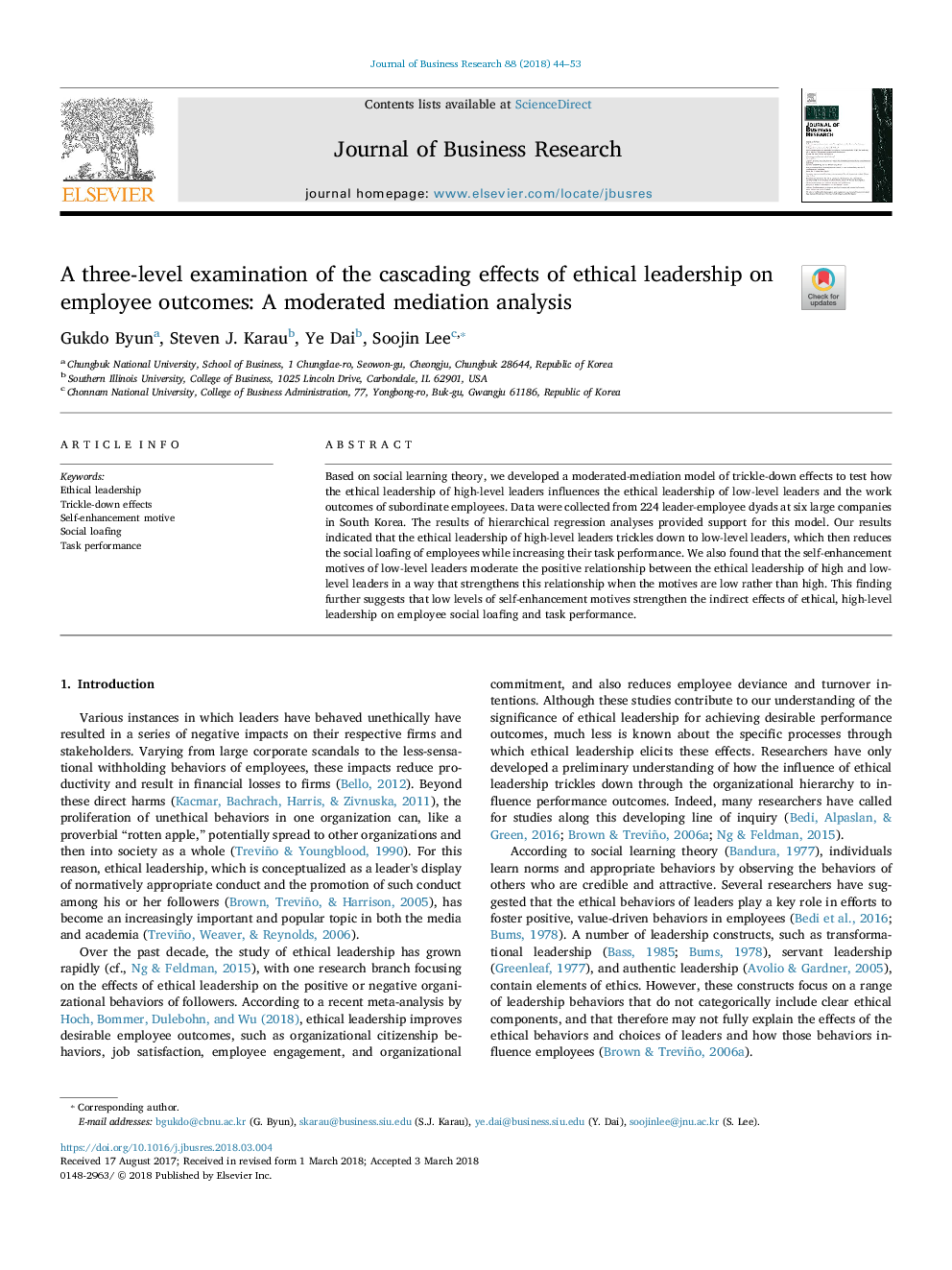ترجمه فارسی عنوان مقاله
بررسی سه گانه اثرات آبشار رهبری اخلاقی بر نتایج کارکنان: یک تحلیل میانجیگری مدون
عنوان انگلیسی
A three-level examination of the cascading effects of ethical leadership on employee outcomes: A moderated mediation analysis
| کد مقاله | سال انتشار | تعداد صفحات مقاله انگلیسی |
|---|---|---|
| 98725 | 2018 | 10 صفحه PDF |
منبع

Publisher : Elsevier - Science Direct (الزویر - ساینس دایرکت)
Journal : Journal of Business Research, Volume 88, July 2018, Pages 44-53
ترجمه کلمات کلیدی
رهبری اخلاقی، اثرات خفیف، انگیزه خودمحور، افت تحصیلی راندمان فعالیت،
کلمات کلیدی انگلیسی
Ethical leadership; Trickle-down effects; Self-enhancement motive; Social loafing; Task performance;
ترجمه چکیده
بر اساس نظریه یادگیری اجتماعی، ما یک مدل مداخله میانجیگری از اثرات درهم آمیخته را برای تست اینکه چگونه رهبری اخلاقی رهبران سطح بالا بر رهبری اخلاقی رهبران پایین سطح و نتایج کار کارکنان زیردستان تأثیر می گذارند، ایجاد کردیم. داده ها از 224 دیودهای رهبر و کارکنان در شش شرکت بزرگ در کره جنوبی جمع آوری شد. نتایج حاصل از تجزیه و تحلیل رگرسیون سلسله مراتبی، پشتیبانی از این مدل را فراهم می کند. نتایج ما نشان داد که رهبری اخلاقی رهبران سطح بالا به رهبران سطح پایین منتهی می شود و پس از آن باعث کاهش کارایی کارکنان در هنگام افزایش کارایی آنها می شود. همچنین ما دریافتیم که انگیزه های خودکفایی رهبران پایین سطح رابطه مثبت بین رهبری اخلاقی رهبران بالا و پایین را تعدیل می کند به گونه ای که این رابطه را تقویت کند وقتی که انگیزه ها کم و نه زیاد باشد. این یافته بیشتر نشان می دهد که سطوح پایین انگیزه های خودمحور باعث تقویت اثرات غیر مستقیم رهبری اخلاقی و رهبری در سطوح بالای کارکنان اجتماعی و عملکرد کار می شود.

